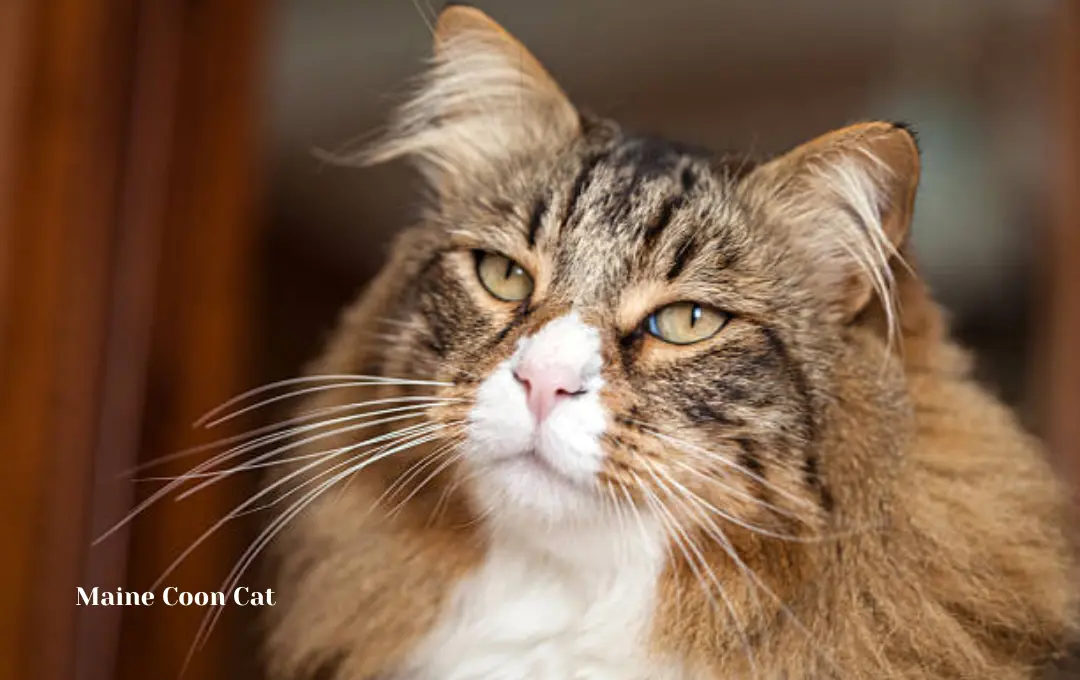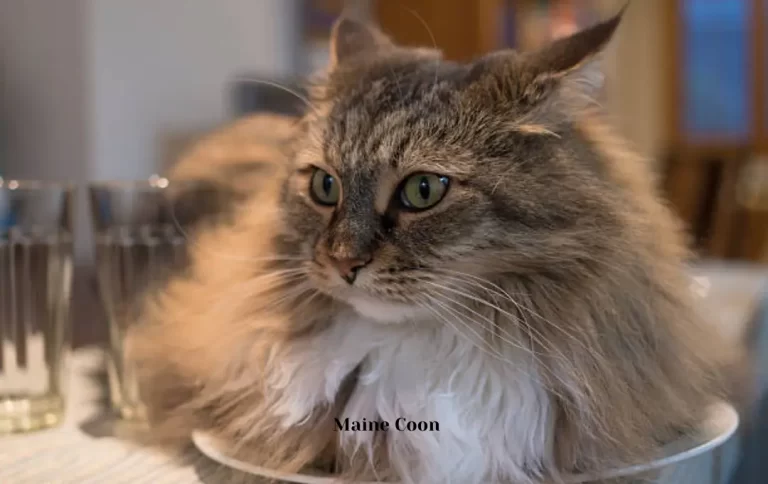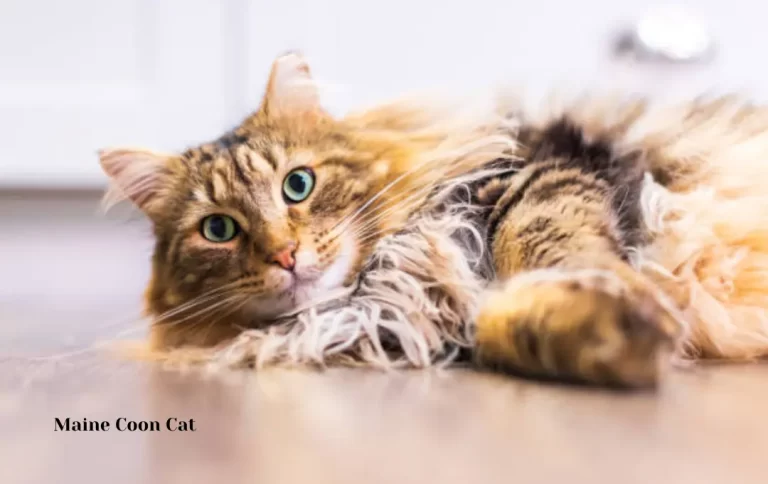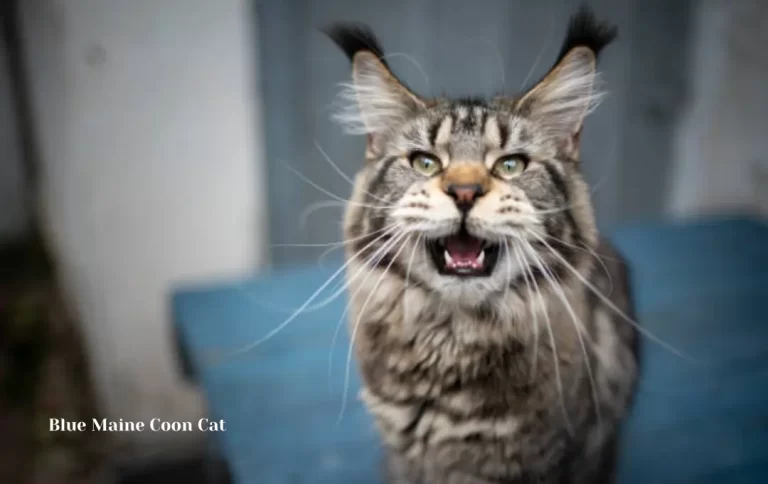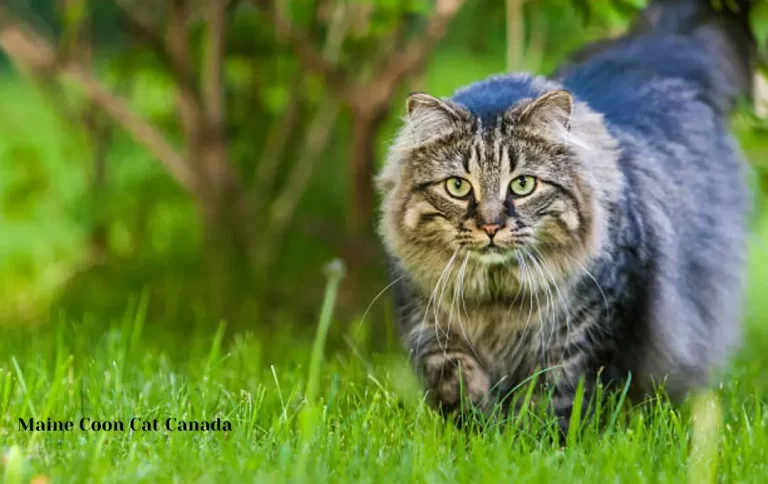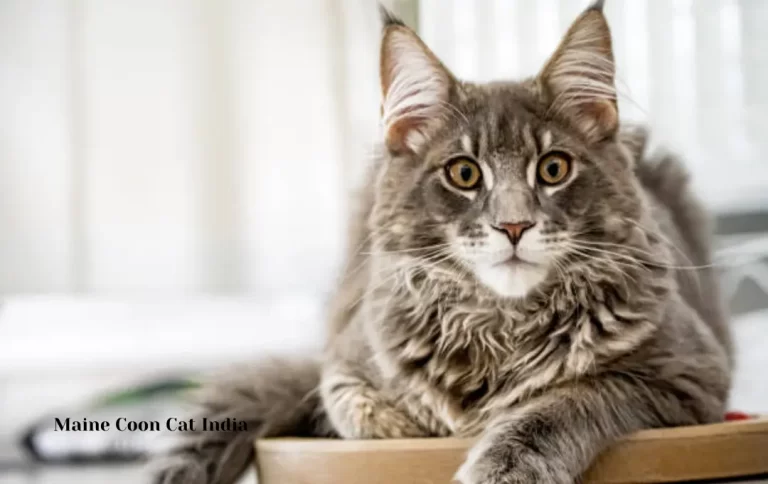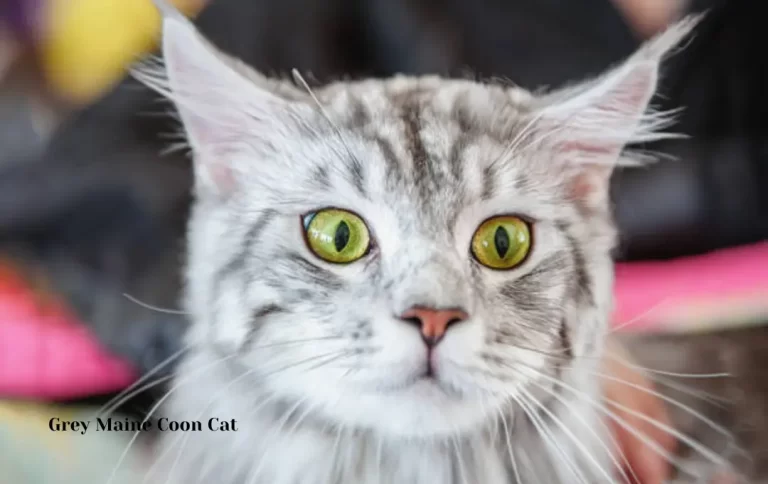Inexpensive Purebred Maine coon cost 2023 | Maine Coon – Price, Personality& Lifespan
Maine Coon cats are renowned for their majestic appearance, friendly temperament, and captivating personalities. These gentle giants are among the largest domestic cat breeds in the world, known for their striking tufted ears, luxurious coats, and bushy tails. When it comes to acquiring a Maine Coon, prospective pet owners often wonder about the purebred Maine Coon cost. This comprehensive guide will delve into the factors that influence the cost of purebred Maine Coon cats, helping potential cat owners make informed decisions.
The Maine Coon Breed
The Maine Coon cat is a remarkable and distinctive breed with a rich history, unique physical attributes, and charming personalities. In this chapter, we will explore the fascinating world of Maine Coon cats.
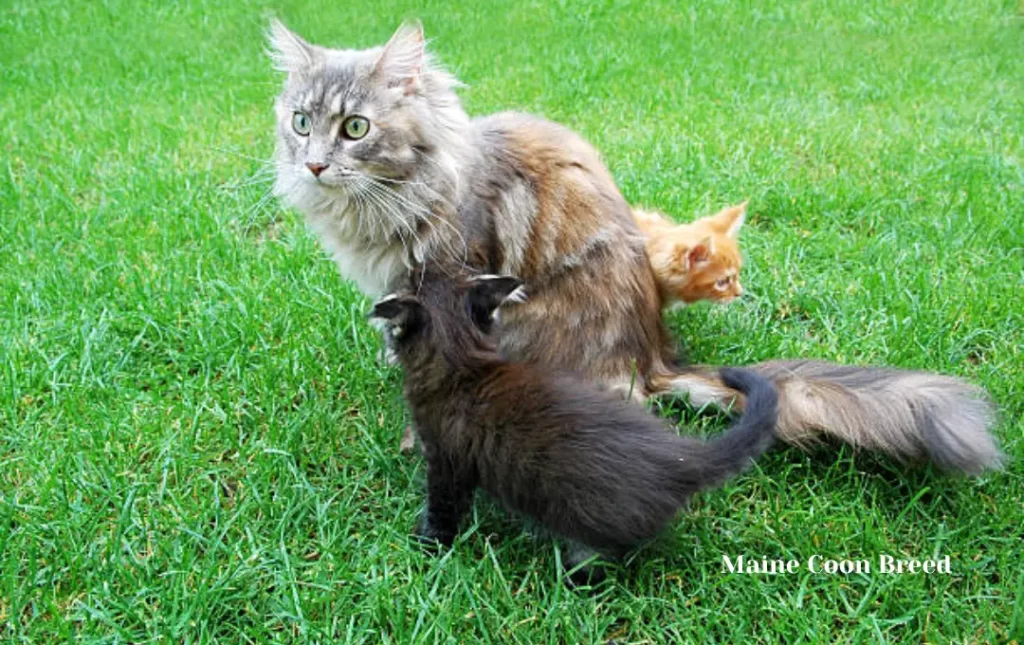
Origin and History
The Maine Coon’s origin is the stuff of legend. While there are many theories about their beginnings, one of the most popular stories is that they descended from a cross between semi-wild, long-haired domestic cats and seafaring cats that arrived with sailors in New England in the 19th century. These hardy cats quickly adapted to the harsh climate and rural lifestyle of Maine, earning them the moniker “Maine Coon.”
Maine Coon cats are considered one of the oldest natural breeds in North America. The breed was officially recognized by the Cat Fanciers’ Association (CFA) in 1976, solidifying its place in the world of purebred cats.
Physical Characteristics
Maine Coon cats are known for their impressive physical features:
Size: Maine Coons are among the largest domestic cat breeds, with males weighing between 13 to 18 pounds and females ranging from 8 to 12 pounds. Some exceptional males can reach up to 25 pounds.
Coat: Their semi-long, water-repellent fur is thick and lustrous, making it resistant to the elements. They have a full ruff of fur around their neck and a bushy tail, which can be as long as their body.
Ears: Perhaps the most iconic feature of the Maine Coon is its large, tufted ears. These ear tufts, along with the tuft of fur at the tips, help protect their ears from cold weather.
Eyes: Maine Coon cats typically have large, expressive, and almond-shaped eyes. Eye color can vary, but they often match the coat color.
Muzzle: Their faces are slightly square-shaped with a prominent chin, giving them an alert and intelligent expression.
Personality and Temperament
Maine Coon cats are renowned for their friendly and sociable nature. They are often described as “gentle giants” due to their large size and affectionate disposition. Some key traits include:
- Playful: Maine Coons maintain a playful and kitten-like demeanor throughout their lives, enjoying interactive playtime with their owners.
- Intelligent: These cats are known for their intelligence and problem-solving abilities. They can quickly learn tricks and adapt to new environments.
- Social: Maine Coon cats are social creatures and enjoy the company of their human families. They are often described as “dog-like” in their loyalty.
- Vocal: While they aren’t as vocal as Siamese cats, Maine Coons do enjoy “talking” to their owners with a variety of chirps, trills, and meows.
- Adaptable: Their adaptability makes them well-suited to both active and more laid-back households, as they are comfortable in various living situations.
Factor effects on purebred maine coon cost
Breeder Reputation
When it comes to acquiring a purebred Maine Coon cat, one of the most critical factors that influence the cost and the overall quality of the cat is the reputation of the breeder. In this chapter, we will delve into why breeder reputation matters and how it can impact the acquisition of a purebred Maine Coon.
What is the Breeder’s Reputation?
A breeder’s reputation is a measure of their credibility, ethics, and expertise in cat breeding. It is built over time through a history of responsible breeding practices, ethical treatment of cats, and the production of healthy, well-socialized kittens. A reputable breeder is one who is widely recognized and respected in the cat breeding community and is committed to the well-being of the cats they produce.
The Importance of Choosing a Reputable Breeder
Health and Genetic Quality: Reputable breeders prioritize the health and genetic quality of their cats. They conduct health screenings and genetic testing to ensure that their breeding cats are free from hereditary diseases and conditions. This leads to healthier kittens with a lower risk of genetic disorders.
Socialization: Kittens from reputable breeders are typically well-socialized. They are raised in a nurturing environment where they receive human interaction, ensuring they grow up to be friendly, confident, and well-adjusted cats.
Documentation: Reputable breeders provide proper documentation, including pedigree papers and health records. This transparency helps buyers verify the lineage and health of their cat.
Ethical Treatment of Cats: A key aspect of reputation is how breeders treat their cats. Reputable breeders ensure that their breeding cats live in clean and humane conditions, with access to proper healthcare, nutrition, and socialization.
Education and Support: Responsible breeders often offer guidance and support to new cat owners. They are available to answer questions and provide assistance throughout the cat’s life.
The Impact on Cost
Reputable breeders typically charge higher prices for their purebred Maine Coon cats. This cost reflects the value of the breeder’s efforts to produce healthy, well-adjusted kittens, as well as their commitment to the breed’s standards and ethics.
While it may be tempting to seek out lower-priced Maine Coon cats from less reputable sources, doing so can lead to numerous risks, including higher veterinary bills, behavior problems, and heartbreak due to health issues in the cat.
How to Identify a Reputable Breeder
Association Membership: Reputable breeders are often members of cat breeding associations such as The International Cat Association (TICA) or the Cat Fanciers’ Association (CFA).
References and Reviews: Seek out references and reviews from previous buyers. Reputable breeders should have a history of satisfied customers willing to vouch for their practices.
Transparency: Reputable breeders are transparent about their breeding practices, the health of their cats, and their living conditions. They should be willing to answer your questions and provide documentation.
Health Guarantees: A breeder who offers health guarantees and is willing to take back a cat if issues arise is more likely to be reputable.
Visiting the Cattery: If possible, visit the breeder’s cattery in person. This will give you a firsthand look at their practices and the living conditions of their cats.
Bloodlines and Pedigree
The lineage and pedigree of a purebred Maine Coon cat play a significant role in determining its cost and overall quality. In this chapter, we will explore the importance of bloodlines and pedigree in the world of Maine Coon breeding.
Understanding Bloodlines and Pedigree
Bloodlines: In the context of cat breeding, “bloodlines” refer to the genetic heritage of a cat. A bloodline is a line of descent that traces a cat’s lineage back through its ancestors. In the case of purebred cats like Maine Coons, specific bloodlines are often associated with certain desirable traits, such as coat color, pattern, size, and temperament.
Pedigree: A pedigree is a formal document that records a cat’s ancestry, typically going back several generations. It provides a detailed family tree that includes the names and registration numbers of the cat’s parents, grandparents, and sometimes even further back. A high-quality pedigree certifies the cat’s lineage and ensures that it meets the breed’s standards.
The Significance of Bloodlines and Pedigree
Breed Standards: Breed standards are established guidelines that describe the ideal appearance and characteristics of a particular breed. Bloodlines and pedigree play a crucial role in adhering to these standards. Reputable breeders strive to produce cats that meet or exceed these standards, and a strong pedigree is an essential part of achieving this goal.
Predictable Traits: Cats with well-documented bloodlines and pedigrees are more likely to exhibit consistent and predictable traits. This is important for breeders and buyers who want to ensure they get a Maine Coon with specific traits, such as a particular coat color or temperament.
Show Quality: Maine Coon cats with exceptional pedigrees may be considered “show quality.” These cats have the physical attributes and temperament necessary to excel in cat shows. Show-quality Maine Coons can command higher prices due to their pedigree.
Reputation and Value: The reputation of a bloodline or cattery can significantly impact the value of the kittens it produces. A bloodline with a history of producing award-winning cats or cats with exceptional traits may be more sought after and command higher prices.
Genetic Health: A thorough pedigree should include health records, which can help prospective buyers assess the risk of hereditary diseases or conditions in the cat’s lineage. This information is crucial for making an informed decision about a cat’s long-term health.
Different Types of Pedigree
In the world of Maine Coon breeding, you may come across various types of pedigrees, each reflecting different levels of purity and documentation:
Foundation Pedigree: This type of pedigree traces the cat’s ancestry back to the breed’s foundation cats. It’s often associated with cats that have a more diverse genetic heritage.
Champion Pedigree: A champion pedigree indicates that the cat’s lineage includes cats that have won titles or awards at cat shows.
Grand Champion Pedigree: This is an even higher level of recognition, indicating that the cat’s ancestors achieved the prestigious title of Grand Champion.
Kitten vs. Adult Cat
When considering the acquisition of a purebred Maine Coon cat, potential owners face the choice between getting a kitten or an adult cat. This chapter will explore the pros and cons of each option and how it can affect the cost of your Maine Coon companion.
The Appeal of Kittens
Bonding and Growth: Many cat owners are drawn to kittens for the opportunity to build a strong bond with their cat from a young age. Raising a kitten allows you to be a part of their formative months, contributing to their growth and development.
Trainability: Kittens are highly adaptable and typically easier to train compared to adult cats. They can be taught litter box manners, scratching post etiquette, and various tricks more readily.
Longevity: When you get a Maine Coon kitten, you have the potential for a longer life together. Kittens have a longer life expectancy compared to adopting an older cat.
Customization: With a kitten, you have the opportunity to shape their personality and habits to suit your lifestyle. You can introduce them to your household rules and routines.
Cute and Playful: Kittens are undeniably adorable, and their playful antics can be highly entertaining. Their boundless energy can bring joy and laughter to your home.
The Benefits of Adult Cats
Established Personality: When you adopt an adult Maine Coon, you have a clearer understanding of their temperament and behavior. This can be especially helpful if you’re seeking a cat with specific personality traits.
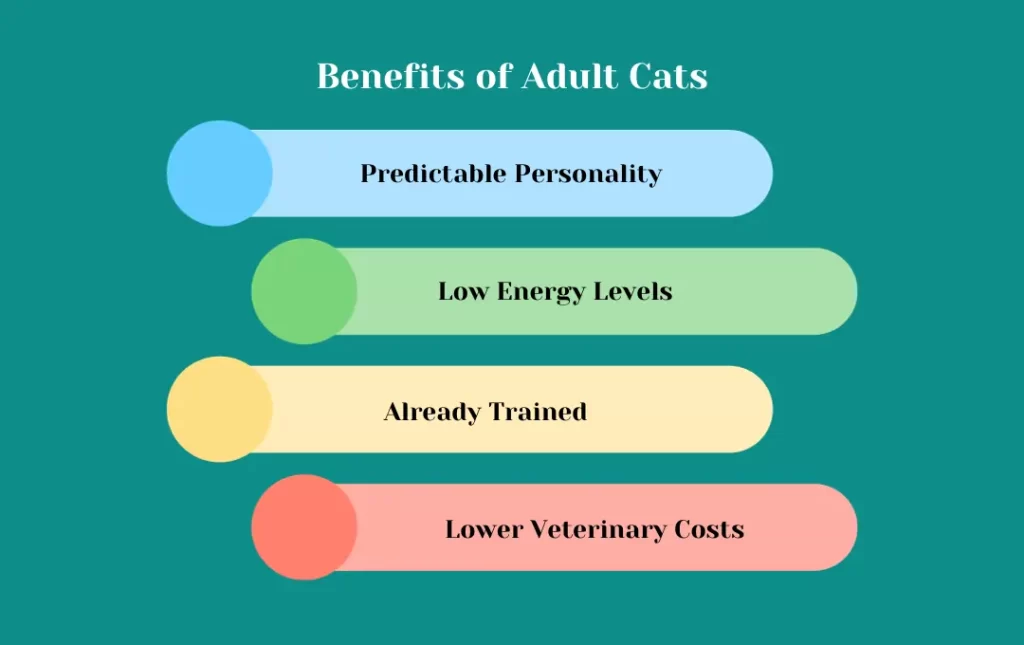
Low Maintenance: Adult cats are generally less demanding than kittens. They often require less supervision, and they are usually litter box trained.
Known Health Status: An adult Maine Coon may have a documented health history, allowing you to assess any pre-existing conditions or health concerns.
Reduced Destructive Behavior: Kittens can be quite destructive as they explore their surroundings and teethe. Adult cats are less likely to engage in this type of behavior.
Adoption and Rescue: Adopting an adult Maine Coon from a rescue organization or shelter can be a fulfilling experience. You provide a loving home to a cat in need and may save on costs compared to purchasing from a breeder.
The Impact on Cost
The cost of acquiring a Maine Coon kitten is typically higher than that of an adult cat. This is due to the time, effort, and expenses involved in breeding, raising, and caring for kittens, as well as the potential for pedigree and show quality.
However, the initial cost is not the only financial consideration. When adopting a kitten, you’ll incur additional expenses for vaccinations, spaying/neutering, microchipping, and training. Adult cats often come with these procedures already completed, potentially reducing immediate costs.
Making the Decision
The choice between a kitten and an adult Maine Coon cat ultimately depends on your lifestyle, preferences, and what you are looking for in a feline companion. Consider factors such as your ability to invest time in training, your desire for a specific personality, and your financial resources. Both kittens and adult cats can make wonderful additions to your family, so the decision should be based on what aligns best with your circumstances and goals.
Coat Colors and Patterns
The coat of a Maine Coon cat is one of its most striking and distinguishing features. Maine Coons come in a wide variety of coat colors and patterns, and these variations can significantly impact the cost of a purebred Maine Coon cat. In this chapter, we’ll delve into the fascinating world of Maine Coon coat colors and patterns.
Common Coat Colors
Brown Tabby: Brown tabby is one of the most common coat colors in Maine Coon cats. This pattern features a warm, brown background with distinctive dark stripes. It’s often referred to as the “classic” Maine Coon coat.
Red or Orange: Red Maine Coon cats have a rich, reddish-orange coat. Sometimes, you may find cream-colored Maine Coons, which have a lighter, almost pale orange coat.
Black: Black Maine Coon cats have a solid black coat. They are sleek and elegant with a shiny, inky appearance.
Blue: Blue Maine Coon cats feature a grayish-blue coat, often with silver or white accents. This color gives them a somewhat regal appearance.
White: Pure white Maine Coon cats are stunning with their snow-white fur. They may have blue, green, or odd-colored eyes.
Other Solid Colors: Maine Coons can come in other solid colors like cream, chocolate, and lavender.
Coat Patterns
Tabby: Tabby patterns include the classic brown tabby, but there are also variations like silver tabby, red tabby, and blue tabby. These patterns feature stripes or marbling on a lighter background.
Bi-Color: Bi-color Maine Coons have a combination of two colors, typically white and one other color. This pattern can create striking and unique looks.
Tortoiseshell (Tortie): Tortie cats have a mix of two or more colors, often including black, red, and variations of those colors. The colors are typically in mottled or marbled patterns.
Calico: Calico Maine Coons have a combination of white, black, and red patches in their coat. They are often referred to as “tricolor” cats.
Solid: Solid coat patterns are entirely one color without any additional markings.
How Coat Colors and Patterns Affect Cost
The cost of a purebred Maine Coon cat can vary based on its coat color and pattern for several reasons:
- Rarity: Some coat colors and patterns are rarer than others, making cats with these traits more valuable to breeders and buyers.
- Breeder Focus: Some breeders specialize in certain coat colors or patterns. If a particular coat type is in high demand, breeders who focus on that variation may charge a premium.
- Show Potential: Certain coat colors and patterns may be preferred in the cat show world. Cats with these desirable traits may be more expensive as they have the potential to become show champions.
- Popularity: Pop culture and current trends can influence the demand for specific coat colors and patterns. Cats that match popular preferences may command higher prices.
- Breeder Reputation: Reputable breeders who have a history of producing cats with specific coat qualities may charge more for their kittens.
It’s essential to remember that coat color and pattern do not affect the cat’s overall health or temperament. Maine Coons of all coat types can be loving, healthy, and wonderful companions. When choosing a Maine Coon cat, prioritize qualities that align with your preferences and lifestyle rather than focusing solely on coat characteristics.
Gender
The gender of a Maine Coon cat is another factor that can influence the cost when acquiring a purebred cat. In this chapter, we will explore the differences between male and female Maine Coon cats and how gender may impact the price.
Male Maine Coon Cats
Male Maine Coon cats, commonly referred to as toms or males, have their own unique characteristics:
Size: Males are typically larger and heavier than their female counterparts, making them one of the largest domestic cat breeds. Some exceptional male Maine Coons can reach up to 25 pounds in weight.
Appearance: They often have more prominent facial features, including larger heads and cheekbones.
Personality: Male Maine Coons are known for being affectionate, friendly, and playful. They tend to have a social and outgoing nature.
Territorial Behavior: Males can exhibit territorial behavior, which may include marking their territory with urine. Neutering can reduce this behavior.
Female Maine Coon Cats
Female Maine Coon cats, commonly known as queens, also have distinct characteristics:
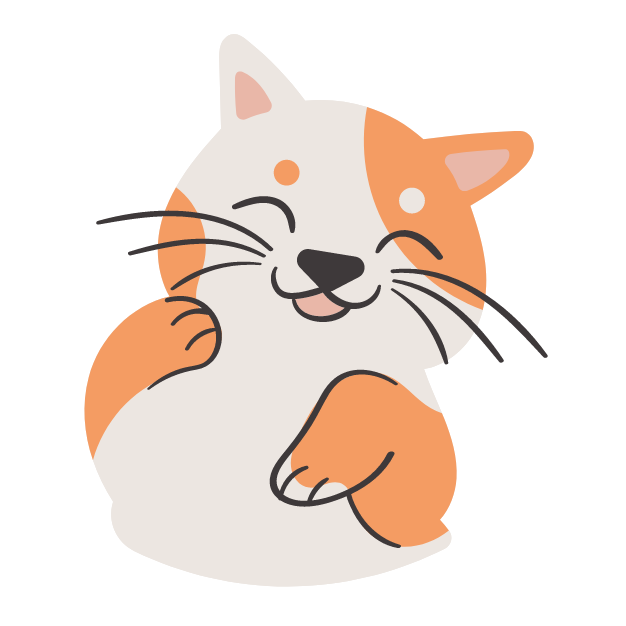
Is a male or female Maine Coon better?
There is not a huge difference between the genders when it comes to Maine Coon personality traits.
Size: While females are smaller in size compared to males, they are still larger than many other domestic cat breeds.
Appearance: They often have a more refined and graceful appearance, with slightly smaller facial features.
Personality: Female Maine Coons are generally affectionate, sociable, and intelligent. They may be less territorial compared to males.
Motherly Instincts: Female Maine Coons often exhibit strong maternal instincts, making them excellent mothers when they have kittens.
Gender and Cost
The gender of a Maine Coon cat can influence its cost, but the difference is not typically significant and should not be the sole factor in your decision. Some considerations related to gender and cost include:
Breeder Preferences: Some breeders may price males and females differently based on their individual preferences, or they may charge more for cats with specific gender traits.
Neutering/Spaying: In many cases, the cost of neutering (for males) and spaying (for females) is included in the purchase price. Spaying or neutering helps control the cat population and can also influence behavior.
Show Potential: For Maine Coon cats with show potential, gender can play a role in the decision. The show circuit may have different categories for males and females, and some breeders or buyers may have preferences for one gender over the other for show purposes.
Personal Preference: Your own preferences for the gender of your cat may also impact your decision. Some people have strong feelings about having a male or female cat as a pet.
Ultimately, the most important factor in choosing the gender of your Maine Coon cat should be your personal preference and how well the cat’s personality and traits align with your lifestyle and expectations.
Neutering and Spaying
Neutering (for males) and spaying (for females) are common practices to control the cat population and prevent unwanted litter. Many breeders will include the cost of these procedures in the purchase price of a Maine Coon kitten. Neutering and spaying also have health and behavior benefits, such as reducing the risk of certain cancers and minimizing territorial or mating-related behavior.
Health and Genetic Testing
The health and genetic testing of a purebred Maine Coon cat is a crucial aspect of responsible breeding and pet ownership. In this chapter, we will delve into the importance of health and genetic testing, how it can influence the cost of a Maine Coon, and what prospective owners should look for in this regard.
The Significance of Health and Genetic Testing
Preventing Hereditary Diseases: Genetic testing is essential for identifying the presence of hereditary diseases or conditions in breeding cats. Responsible breeders aim to eliminate these diseases from their lines to ensure that the kittens are healthy.
Ensuring Healthy Offspring: Health testing helps breeders make informed decisions about breeding pairs, increasing the likelihood of producing kittens that are free from known genetic disorders.
Long-Term Health: The health of a Maine Coon cat is not only essential for the cat’s well-being but also for the owner’s long-term financial and emotional investment. Healthy cats are less likely to require costly veterinary care.
Ethical Breeding: Reputable breeders prioritize ethical breeding practices, which include health testing to ensure that their breeding cats are not carriers of hereditary diseases.
Common Health and Genetic Tests
- HCM (Hypertrophic Cardiomyopathy) Screening: HCM is a common heart condition in Maine Coon cats. Breeding cats should undergo regular cardiac ultrasounds to check for signs of HCM.
- PKD (Polycystic Kidney Disease) Testing: PKD is a genetic disorder that can lead to kidney problems. Testing can identify whether a cat carries the PKD gene.
- SMA (Spinal Muscular Atrophy) Testing: SMA is a hereditary disease that affects muscle function. Testing can identify carriers of the SMA gene.
- Hip Dysplasia Evaluation: Hip dysplasia is a condition where the hip joint doesn’t fit properly into the hip socket. Breeding cats should undergo hip evaluations to screen for this condition.
- Blood Type Testing: Some Maine Coon cats can have a rare blood type known as Type B. Knowing a cat’s blood type is important, especially for breeding purposes.
- Coat Color and Pattern Genetics: While not a health test, genetic testing for coat color and pattern can help breeders produce specific color variations.
How Health and Genetic Testing Can Affect Cost
Maine Coon cats bred by responsible breeders who invest in health and genetic testing often come at a higher cost. This is because of the added expenses associated with testing, as well as the assurance of better overall health and genetic quality. While you may pay more upfront, you can expect a healthier and potentially less expensive cat in the long run.
Keep in mind that the cost of testing is typically included in the overall price of the cat. However, it is essential to verify that the breeder provides documentation of the test results for the breeding cats, which can help you make an informed decision about the cat’s health.
The Importance of Responsible Breeding
In addition to health and genetic testing, responsible breeders prioritize the overall well-being of their cats. They provide proper nutrition, socialization, veterinary care, and a safe, clean environment for their cats. They are transparent about their breeding practices and should be willing to answer any questions you have about the health and genetics of their cats.
Vaccinations and Microchipping
The health and safety of a purebred Maine Coon cat are of paramount importance, and vaccinations and microchipping play a significant role in achieving this. In this chapter, we will discuss the importance of vaccinations and microchipping for Maine Coon cats, how these practices can influence the cost, and why they are essential for responsible pet ownership.
The Importance of Vaccinations
Vaccinations are a critical component of preventive healthcare for Maine Coon cats. They help protect the cat from a range of potentially serious and even life-threatening diseases. Key points about vaccinations include:
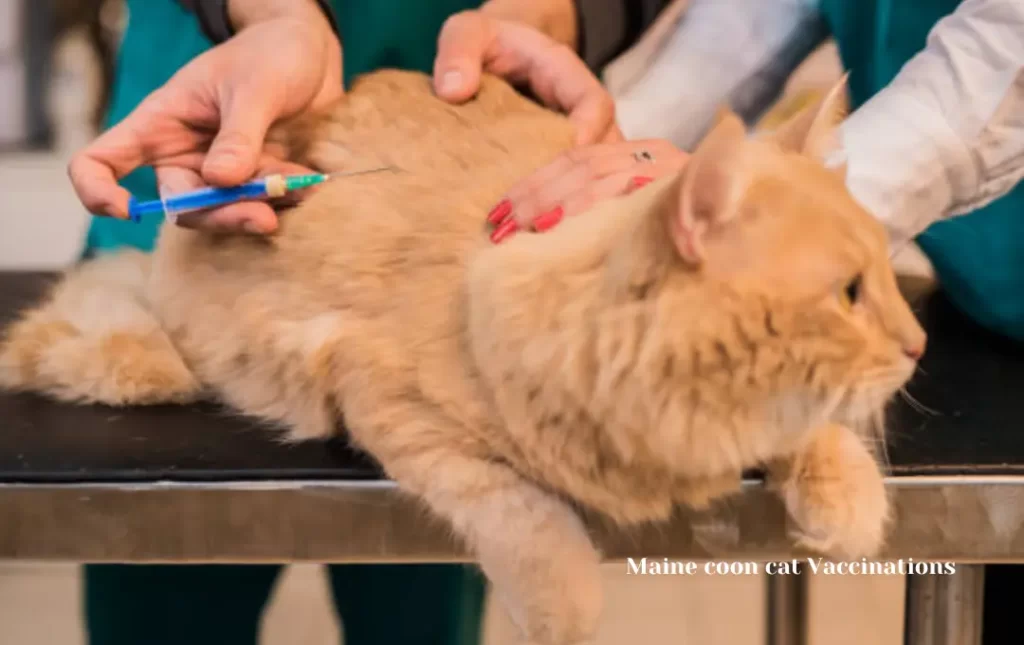
Disease Prevention: Vaccinations provide immunity against diseases such as feline leukemia, feline calicivirus, feline rhinotracheitis, and rabies. These diseases can be highly contagious and may have severe consequences for an unvaccinated cat.
Lifesaving: Vaccinations are essential for kittens to build immunity, and booster shots are required as cats age to maintain protection. They are a cost-effective way to prevent costly treatments or even the loss of a beloved pet.
Legal Requirement: In many regions, rabies vaccination is a legal requirement for pet cats. Non-compliance may result in legal consequences.
Social Responsibility: Vaccinating your cat not only protects their health but also contributes to the overall well-being of the feline community. It helps control the spread of diseases and reduces the risk to other cats.
Registration and Documentation
Registration and documentation are essential aspects of acquiring a purebred Maine Coon cat. In this chapter, we will explore why these records are important, what types of documentation to expect when acquiring a Maine Coon, and how they can impact the cost and value of your cat.
The Importance of Registration and Documentation
Proper documentation is a hallmark of responsible breeding and pet ownership. It provides a clear record of the cat’s lineage, health history, and legal status. Key reasons for valuing registration and documentation include:
Pedigree Verification: Registration and documentation provide evidence of the cat’s pedigree, allowing you to confirm its lineage and ancestry. This is particularly important for purebred Maine Coons, as it ensures that the cat meets breed standards.
Health Records: Medical records, including vaccination history and any past health issues, are essential for ensuring the cat’s well-being and for addressing any potential health concerns in the future.
Ownership Proof: Documentation serves as legal proof of ownership, protecting you in case of disputes or lost and found situations. It’s especially crucial for ensuring that the cat has not been stolen.
Resale and Breeding Value: Should you decide to sell or breed your Maine Coon cat in the future, having proper documentation enhances its value. Buyers and breeders place a premium on well-documented cats.
Common Types of Documentation
When acquiring a purebred Maine Coon cat, you should expect to receive the following types of documentation:
Pedigree Papers: Pedigree papers detail the cat’s lineage, often going back several generations. They typically include the names, registration numbers, and sometimes photos of the cat’s ancestors. These papers are essential for proving the cat’s purebred status.
Health Records: These records document the cat’s medical history, including vaccinations, microchipping, spaying or neutering, and any past health issues. They provide valuable information for maintaining the cat’s health.
Registration Certificate: The registration certificate is issued by a recognized cat breed registry, such as The International Cat Association (TICA) or the Cat Fanciers’ Association (CFA). It confirms the cat’s pedigree and breed status and may include a unique registration number.
Microchip Documentation: If the cat has been microchipped, you should receive documentation confirming the chip’s unique identification number. This information is crucial for tracking the cat if it is lost.
Sales Contract: A sales contract outlines the terms of the sale and may include warranties, guarantees, or conditions. It’s a legally binding document that protects both the buyer and the seller.
How Registration and Documentation Affect Cost
Maine Coon cats with thorough registration and documentation typically command higher prices than those without such records. The value of these records lies in the assurance they provide regarding the cat’s breed, health, and legal status.
Frequently Asked Questions
Conclusion
In conclusion, the purebred Maine Coon cost can vary widely depending on numerous factors, from breeder reputation and bloodlines to coat colors and geographic location. Prospective cat owners should carefully consider these factors and conduct thorough research to ensure they acquire a healthy, well-bred Maine Coon that fits their budget and lifestyle. While Maine Coon cats may be a significant financial investment, their companionship, unique personalities, and stunning appearance often make them a worthwhile choice for feline enthusiasts.

